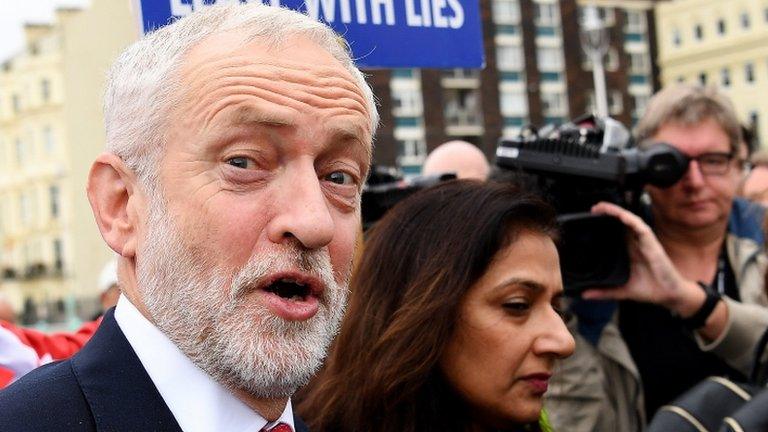Corbyn’s radical economic plan is not about cost - it’s about mood
- Published
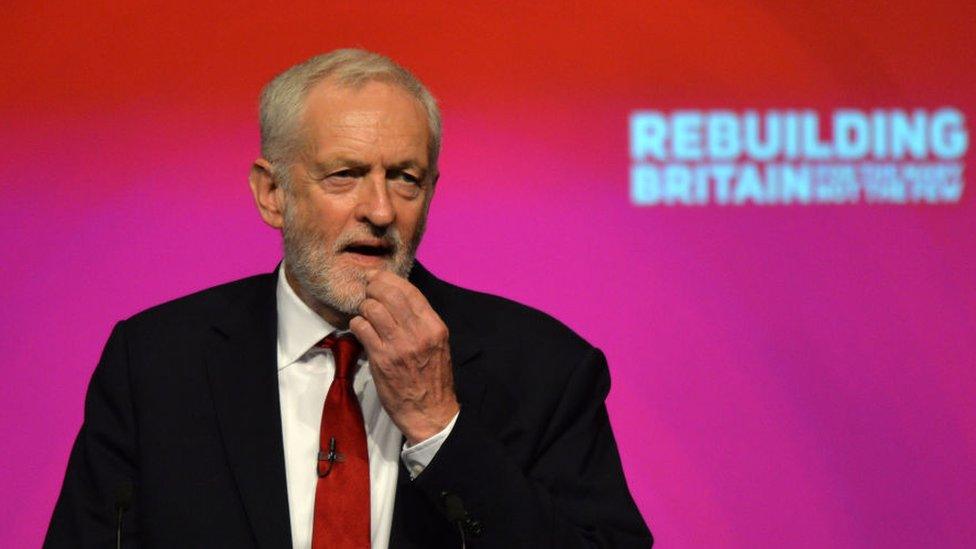
It was Mike Tyson who said: "Everyone has a plan until they get punched in the mouth."
Mr Tyson, a boxer, was channelling his inner Helmuth von Moltke, the 19th century head of the Prussian Army.
Mr Moltke argued that "no battle plan ever survives first contact with the enemy".
The point is a simple one.
You can lay out all sorts of engaging plans for the future.
The question is, what happens when they land in the real world?
Jeremy Corbyn has a plan that he hopes is engaging for voters.
He wants a radically different type of economy, where the government - local and national - is far more involved in the future workings of everything from the ownership of public services like water and rail to the building of houses.
The Labour leader also wants to see a "green jobs revolution", saying a future Labour government will create 400,000 new jobs to support the building of more wind farms, solar panels on roofs and housing insulation schemes.
He knows that if he ever does make it to Number 10, his plan will be tested, some suggest to destruction - given the many billions of pounds of costs associated with, for example, each sector nationalisation.
Governments - as any radical prime minister will tell you - do not act in a vacuum.
Britain is a global economy which relies on billions of pounds a year of foreign investment to fund the fact that the government spends more than it receives in taxes and also to support infrastructure projects like investing in privatised railways and water companies.
Nationalise those sectors and fund managers, including our pension funds, are likely to do two things.
For one, charge more for their money by increasing costs to the government and those businesses funding new projects such as Heathrow and the high speed rail line from Manchester, Leeds and Birmingham to London.
And two, move their capital to other countries where there is a lower risk of assets being taken over by the government.
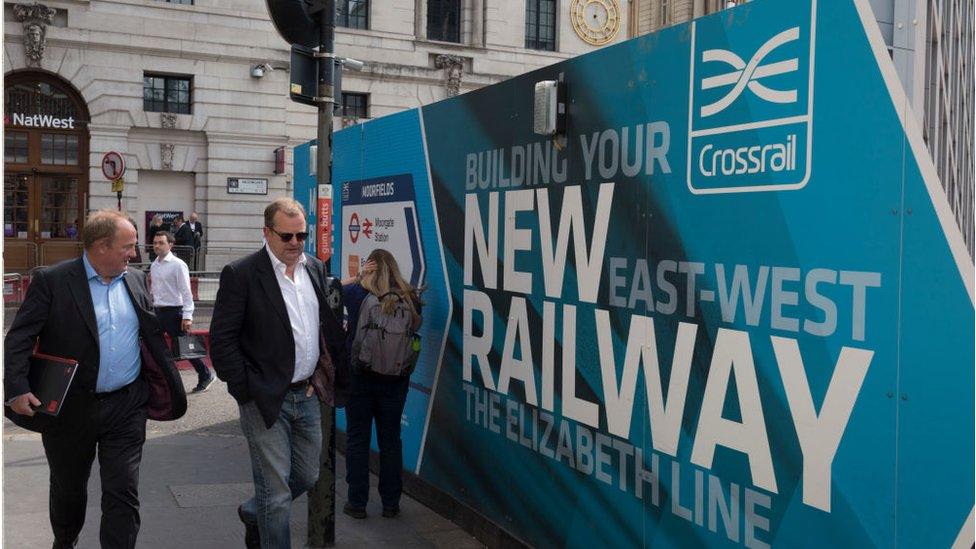
Crossrail is one of the largest single infrastructure investments ever undertaken in the UK
This is the problem of "capital flight" John McDonnell, the shadow chancellor, is so aware of.
The pound could also weaken as demand for sterling assets falls, pushing up inflation as the price of imports, for example of food and fuel, rises.
Economic forces can soon turn against you - particularly if you are attempting heavy surgery.
Heavy surgery, Mr Corbyn insists, is necessary to reboot growth, and which, if successful, can mitigate many of the downside risks outlined above.
Lack of slack
On employment, Mr Corbyn has a different type of problem.
He says he wants to create 400,000 new jobs.
The challenge will be that Britain is already at very high levels of employment.
There are tens of thousands of vacancies in the construction sector and engineering, for example.
So Mr Corbyn is talking less about job creation and more about a skills revolution, which will mean education policies aimed at providing young people with the launch pad they need.
One issue sits at the heart of the Jeremy Corbyn's economic prospectus - and it is not to do with costs or risks of his policies.
It is a judgement about sentiment.
In the past decade household incomes for many millions of people have barely moved.
For those people, there is a sense the economy is not working - and politicians of all colours know there is a thirst for solutions to this remarkable situation of lack of wage growth.
Both the Conservatives and Labour say they want to tackle the problem.
International financing
The Tories by concentrating on control of the public finances, increases in the minimum wage and supporting high levels of employment.
Their fundamental position is that Britain must be an attractive place to invest for fund managers - including of our pensions.
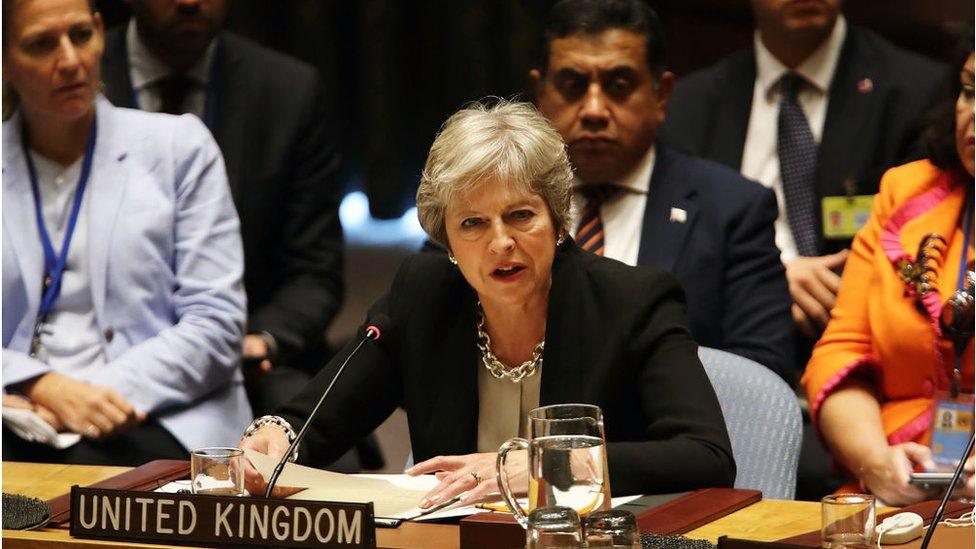
Theresa May speaks at a UN Security Council Meeting in New York
In America today, Theresa May pledged that businesses investing in Britain will be offered the lowest levels of corporation tax among the 20 largest economies in the world and our most significant competitors for international finance such as the US, France and Germany.
Today, Mr Corbyn laid out a very different prospectus.
His point is that the Conservatives have had eight years in government, and still problems persist.
It is time for radical intervention.
Businesses may not agree with many of his policies, which will increase their costs.
But with the mood of the public, struggling with stagnant wages, where it is, they know they cannot dismiss his agenda out of hand.
- Published26 September 2018
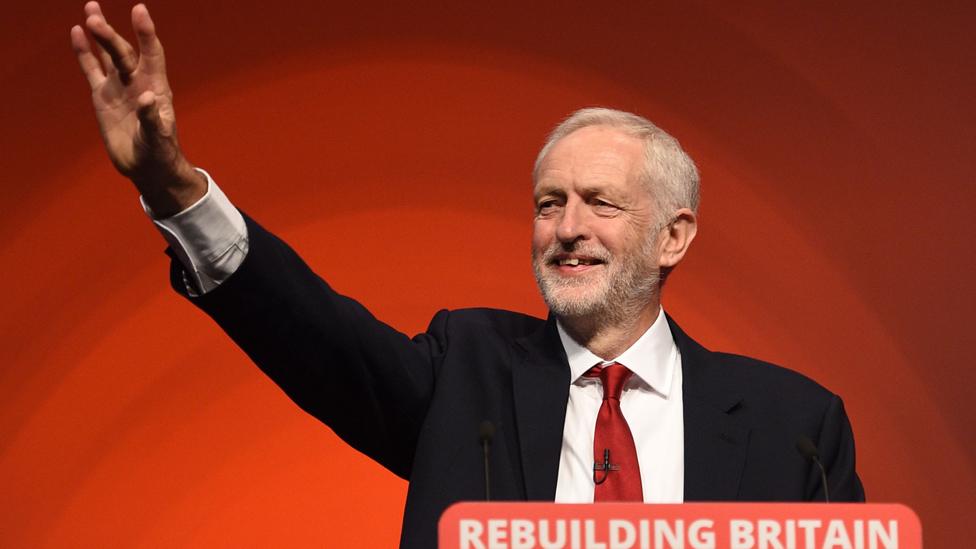
- Published5 November 2019
